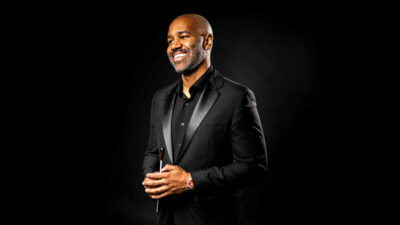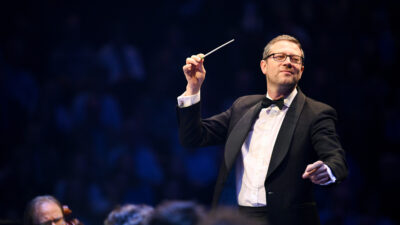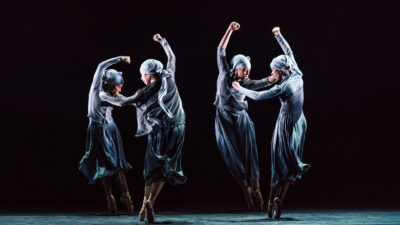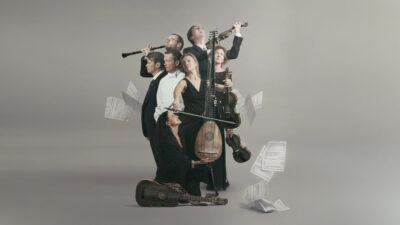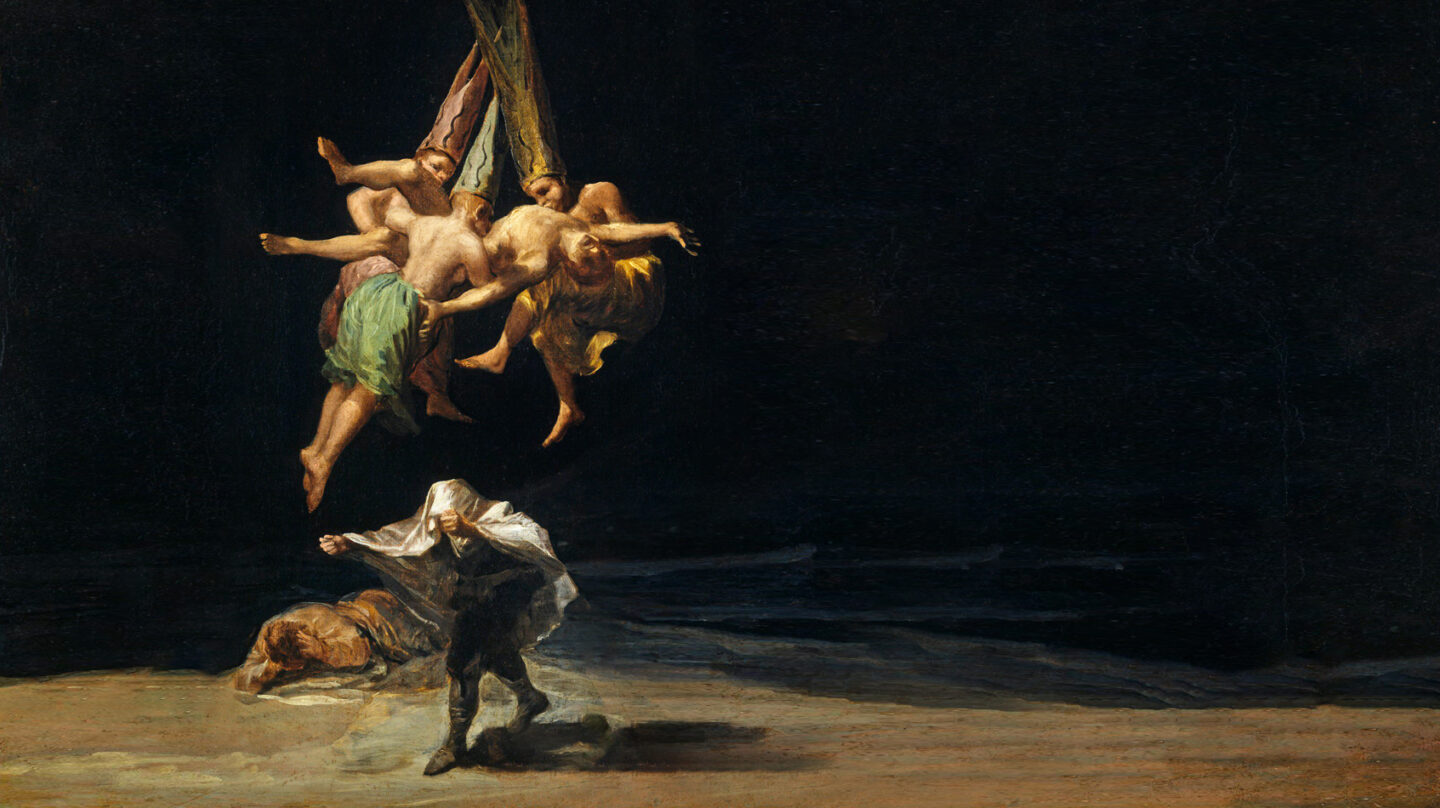
Macbeth
The opera without a love affair
Overview
For Verdi, Shakespeare’s Macbeth was ‘one of mankind’s greatest creations’. His version of the play is full of threat and ferocity, an intense exploration of ruthless ambition in a world governed by superstition and violence. Lady Macbeth dominates. We are proud to welcome Judith Howarth to this most challenging Verdian role, which he required to be vocally “rough, hollow and stifled”. Also central is the chorus, who are both observers and protagonists, given some of Verdi’s most thrilling choral writing.
Director Maxine Braham and designer Madeleine Boyd create a new production for The Grange, conductor Francesco Cilluffo continues his Grange residency following riveting performances of Falstaff and Manon Lescaut. We welcome back Jonathan Lemalu as Banquo, The Grange Festival 2017 Singing Competition winner Samuel Sakker as Macduff and Albanian star Gezim Myshketa as Macbeth. Verdi wrote Macbeth in 1847 for the Teatro della Pergola in Florence. The theatre at The Grange is of similar proportions. To hear and watch Verdian operatic power up close and personal will be memorable.
Previously shown in 2022. Discover the world-class opera, classical music, and dance performances in our 2025 festival lineup.
- Composer — Verdi
- Librettist — Francesco Maria Piave
- Orchestra — Bournemouth Symphony Orchestra
- Sung In — Italian
Production Team
-
Maxine Braham Director and Choreographer
Synopsis
- Previous Slide
- Next Slide
- Act I
- Act II
- Act III
- Act IV
~ Act I ~
Scotland. Macbeth and Banquo, leaders of the Scottish army, meet a group of witches who prophesy the future. They address Macbeth as Thane of Cawdor and King of Scotland, and tell Banquo that he will be the father of kings. The two men try to learn more, but the witches vanish. Messengers arrive with news that Duncan, the current king of Scotland, has made Macbeth Thane of Cawdor. The first part of the witches’ prediction has come true.
In Macbeth’s castle, Lady Macbeth reads a letter from her husband telling her of the events that have just transpired. She resolves to follow her ambitions. A servant announces that Duncan will soon arrive at the castle, and when Macbeth enters, she tells him that they must kill the king. Duncan arrives. Macbeth has a vision of a dagger, then leaves to commit the murder. On his return, he tells his wife how the act has frightened him, and she tells him that he needs more courage. They both leave as Banquo enters with Macduff, a nobleman, who discovers the murder. Macbeth and Lady Macbeth pretend to be horrified and join the others in condemning the murder.
~ Act II ~
Macbeth has become king. Duncan’s son, Malcolm, is suspected of having killed his father and has fled to England. Worried about the prophecy that Banquo’s children will rule, Macbeth and his wife now plan to kill him and his son, Fleance, as well. As Macbeth leaves to prepare the double murder, Lady Macbeth hopes that it will finally make the throne secure.
Outside the castle, assassins wait for Banquo, who appears with his son, warning him of strange forebodings. Banquo is killed, but Fleance escapes.
Lady Macbeth welcomes the court to the banquet hall and sings a drinking song, while Macbeth receives news that Banquo is dead and his son has escaped. About to take Banquo’s seat at the table, Macbeth has a terrifying vision of the dead man accusing him. His wife is unable to calm her unsettled husband, and the courtiers wonder about the king’s strange behavior. Macduff vows to leave the country, which is now ruled by criminals.
~ Act III ~
The witches gather again, and Macbeth visits them, demanding more prophecies. Apparitions warn him to beware of Macduff and assure him that “no man of woman born” can harm him, and that he will be invincible until Birnam Wood marches on his castle. In another vision, he sees a procession of future kings, followed by Banquo. Horrified, Macbeth collapses. The witches disappear and his wife finds him. They resolve to kill Macduff and his family.
~ Act IV ~
On the Scottish border, Macduff has joined the refugees. His wife and children have been killed. Malcolm appears with British troops and leads them to invade Scotland.
Lady Macbeth is sleepwalking, haunted by the horrors of what she and her husband have done.
Macbeth awaits the arrival of his enemies and realizes that he will never live to a peaceful old age. Messengers bring news that Lady Macbeth has died, and that Birnam Wood appears to be moving. English soldiers appear, camouflaged with its branches. Macduff confronts Macbeth and tells him that he was not born naturally but had a Caesarean birth. He kills Macbeth and proclaims Malcolm king of Scotland.
Cast
Films
https://vimeo.com/715553431
Reviews
This production was a remarkable achievement. Verdi's Macbeth is an opera that is so easy to do badly, and here The Grange Festival gave it to us on a highly concentrated scale, full of character, well paced and with some fine singing indeed.
The Grange Festival’s Macbeth is a remarkable production musically and dramatically, that drips with symbolism, pertinent symbolism.
From the Preludio’s dark premonitions, with its wriggling woodwind, through to the slaying of Macbeth, this new production seethes with dramatic tension, and is blessed with finely judged performances from both chorus and principals.
The tenors come late to Verdi’s bloodbath, but when they do arrive, it’s pretty exciting. Samuel Sakker is all sob and throb in Macduff’s shattering lament, ‘Ah, la paterna mano’, his fleshy breadth of tone almost immediately challenged by the narrower blade of Andrés Presno’s Malcolm. Their Act IV duet is a highlight.
Myshketa gave us a Macbeth who slid from a military affability to a chilly isolation, effectively capturing the change in character as the bodies pile up. His Act 4 aria “Pietà, rispetto, amore” was one of the highlights of the evening, plangently sung with attention to the text and an elegant sense of line.
The best of the central performances is Judith Howarth’s Lady Macbeth. An experienced and expert singer, she understands the reason for every word of the text and every single one of Verdi’s notes – delivering both with outstanding authority. Her complex character is firmly and thoughtfully conveyed.
The Bournemouth Symphony Orchestra is conducted with a fiery intensity by Francesco Cilluffo, keeping a firm balance on the music that romps along, at times sweeping and fierce, then gentle and controlled, and occasionally almost film music-like driving the pace of the action

Stay connected
Join The Grange Festival community and stay connected to a world of enchanting performances and exclusive events.
